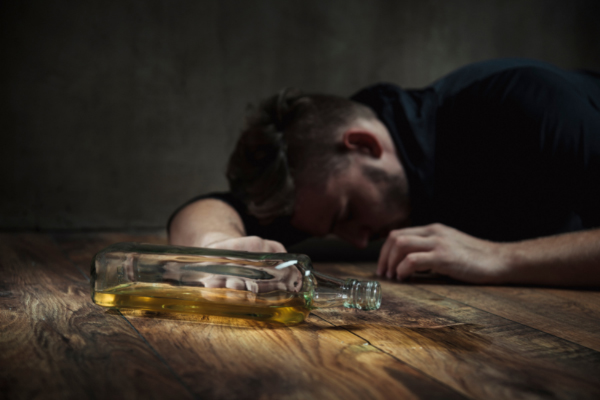When comparing Alcohol and Heroin, the first major difference is that one is a legal substance and the other is very illegal. Yet, both Alcohol and Heroin cause addiction and death by overdose. Alcohol and Heroin are also each classed as central nervous system depressants. They both slow down the heart and breathing rate, and both are physically addictive. When someone is addicted to Alcohol or Heroin, they will experience withdrawal symptoms when they suddenly stop ingesting it. Another similarity between Alcohol and Heroin is the effects of each. Alcohol makes a person mellow and sleepy, so does Heroin. The last difference is the cost. Heroin is a much more costly addiction than Alcohol, and Heroin addicts get into more crime than Alcoholics to sustain their habit.
Historical Information About Heroin and Alcohol
Both Alcohol and Heroin have been drugs of abuse for centuries. Heroin was not Heroin until about two hundred years ago, but Alcohol has been Alcohol for thousands of years. Mesopotamians and Sumerians cultivated opium poppies (which turns into Heroin) over 3400 years ago, and opium poppy resin has been used as a medicinal and recreational drug since then. In comparison, Alcohol was first produced 7000 years ago, when fermented grains, fruit juices, and honey were used to make Alcohol. Alcohol and Heroin as opium poppy have both been documented for medical uses and for intoxicating effects.
What Does Addiction to Alcohol Look Like?
Alcohol is still the leading addiction in the country. Alcoholism affects people from all income levels, nationalities, genders, professions, age groups, religious affiliations, and family backgrounds. When someone can no longer control how much they drink, they will become physically dependent on Alcohol in time. They will experience Alcohol withdrawal symptoms that begin in as few as three hours after the last drink. Alcohol withdrawal symptoms include:
- Rapid pulse and high blood pressure
- Shakiness or delirium tremors
- Severe anxiety
- Sweating and chills
- Nausea, vomiting, diarrhea
- Insomnia
- Inability to eat or drink water
- Hallucinations
- Intense cravings for Alcohol
Approximately 17 million adults ages 18 and older have an alcohol use disorder. (NIAAA)
What Is Heroin Addiction Like?
Heroin addicts are like alcoholics in that they will feel withdrawals symptoms within hours of the last use. The withdrawal symptoms that occur when a person tries to quit Heroin cold turkey are extremely tough to endure. The detox symptoms that Heroin addiction causes include the following:
- Nausea, vomiting, diarrhea
- Insomnia
- Muscle and bone pain
- Restless leg syndrome, also known as kicking
- Sweating, fever, chills
- Rapid pulse, heart palpitations
- Increased blood pressure
- Inability to eat or drink water
- Emotional outbursts
- Anxiety and depression
- Intense cravings for Heroin
Heroin addicts are of all races, income levels, genders, and can be any profession from doctors to store clerks.
Is Alcohol Addiction Worse than Heroin Addiction?
Both Alcohol and Heroin addictions cause dangerous withdrawal symptoms. Similarly, both habits also lead to poor health and legal problems. But when it comes to physical damage to the body, both Alcohol and Heroin ruin the liver. Heroin addicts often contract hepatitis, which is what causes cirrhosis of the liver, the same way that Alcohol destroys the liver. Alcohol, however, will cause more emotional and mental disorders than Heroin. Heroin addicts tend to be more stable than Alcoholics. Additionally, Alcohol is legal and served everywhere, so the relapse rate is much higher for alcoholics than it is for Heroin addicts. Alcohol is in many ways worse than Heroin, but both substances will lead the person towards doom.
What Treatments Do Medical Doctors Recommend for Alcohol and Heroin Addiction?
Doctors specializing in addiction treatment will recommend medication-assisted treatments (MAT) for both Alcohol and Heroin addictions. The Substance Abuse and Mental Health Services Administration state why MAT is effective.
The FDA has approved several different medications to treat alcohol and opioid use disorders. MAT medications relieve the withdrawal symptoms and psychological cravings that cause chemical imbalances in the body. Alcohol Use Disorder Medications include Acamprosate, disulfiram, and naltrexone. Opioid Dependency Medications include Buprenorphine, methadone, and naltrexone. (SAMHSA)
Help is Here for Heroin and Alcohol Addiction in Massachusetts
Evoke Wellness in Massachusetts has medication-assisted treatment, medically supervised detox, in-depth therapy, and an evidence-based rehab program for Alcohol and Heroin addictions. Do not let another day of withdrawal symptoms dictate your life. We have the answer for you to quit today. Call now for immediate access to medications, counseling, and therapy.


